In honor of the 500th anniversary of the Protestant Reformation, we are happy to offer Darrow’s article originally published Feb 18, 2016.
~
Could a new reformation be on the horizon?
We often talk about and pray for much needed revival, a movement of God that would lead to reformation in the West. We speak of a post-Christian world, a post-modern world. We are watching what happens to societies that sever their Judeo-Christian roots.
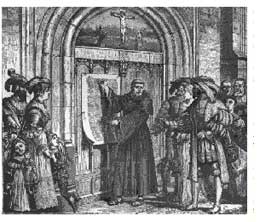 We wonder if there is any hope. Have things gone too far to come back from the brink?
We wonder if there is any hope. Have things gone too far to come back from the brink?
People often ask me “Is there any hope?” I respond by saying that God has brought revival and reformation in the past and He can do it again. What He calls us to is faithfulness in the midst of our generation. He does not call us to be successful, but faithful. Remember the promise of 2 Chronicles 7:14, If my people, who are called by my name, will humble themselves and pray and seek my face and turn from their wicked ways, then will I hear from heaven and will forgive their sin and will heal their land. (NIV)
Could a new reformation be beginning?
But are there any signs of revival? I keep looking for evidence that a new reformation may be beginning.
Which brings me to the January 2016 online edition of First Things. That issue included an article by Richard J. Mouw, “Free University Orthodoxy.”
In this piece, pastor and theologian Mouw writes of changes in the theology department of the esteemed Free University of Amsterdam.
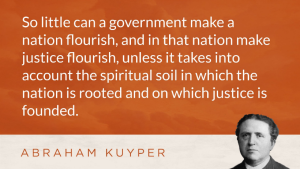 The Free University was founded by the champion of biblical orthodoxy, pastor-theologian-statesman Abraham Kuyper. Sadly, like many other institutions founded in biblical orthodoxy, this school has succumbed to the onslaught of the modern, evolutionary dogma and today is very liberal in its theology.
The Free University was founded by the champion of biblical orthodoxy, pastor-theologian-statesman Abraham Kuyper. Sadly, like many other institutions founded in biblical orthodoxy, this school has succumbed to the onslaught of the modern, evolutionary dogma and today is very liberal in its theology.
But as Mouw puts it, “Theological trends can be reversed, as can be seen in the theological narrative of the Free University.”
Changes in society and cultures often begin with “little people” whose names the world does not know. So it is with this story.
Mouw writes of a liberal theologian from the Free University whose return to Orthodoxy began with a conversation he had with his daughter.
He had been caught up, he confessed, in the liberal theology that he had studied at the Free University, until he was challenged by his teenage daughter. He had been a guest preacher at a local Reformed congregation one Sunday, and at their family dinner afterward his daughter told him that she found nothing in his sermon that spoke to her own spiritual concerns. “My generation needs to hear the Gospel,” she told her father. “Your kind of theology does not touch our lives.” That challenge, he told me, forced him to re-think much of what he had been teaching and preaching. “I don’t even read recent theology anymore,” he told me. “For me it is all about the solid teachings of the early Fathers.”
Mouw goes on to note that orthodox Dutch theologians from the Free University are engaging with theologians in Africa, Asia, Scotland, and the United States.
Perhaps history will look back on Mouw’s observation and recognize that the spark that began the new reformation was kindled by a teenage girl challenging her professor father! His theology, his ideas, had no relevance for the questions young people were asking. And he was wise enough to listen.
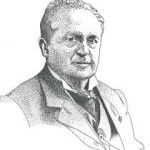 There may be an irony here. As a freshly minted, liberal, seminary graduate, Abraham Kuyper took a rural Dutch church. After one of his “enlightened” sermons, an old, non-literate, peasant women confronted him. In no uncertain terms she told him he did not know what he was talking about. While this old woman could not read or write, and had never studied theology, she had grown up in this church and heard orthodox preaching all her life. She knew what biblical truth was when she heard it. And she knew that what the young Kuyper was spewing was not orthodoxy.
There may be an irony here. As a freshly minted, liberal, seminary graduate, Abraham Kuyper took a rural Dutch church. After one of his “enlightened” sermons, an old, non-literate, peasant women confronted him. In no uncertain terms she told him he did not know what he was talking about. While this old woman could not read or write, and had never studied theology, she had grown up in this church and heard orthodox preaching all her life. She knew what biblical truth was when she heard it. And she knew that what the young Kuyper was spewing was not orthodoxy.
Her simple challenge marked a turning point in Kuyper’s life. He abandoned the liberalism of his generation and became a champion of Judeo-Christian orthodoxy.
Abraham Kuyper’s life and teaching shaped the nation of Holland. In 1898, he went to Princeton University to give the Stone Lectures. Here he tried to stem the tide of the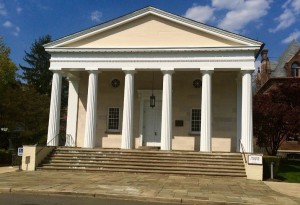 growing atheistic-materialistic worldview as it entered both American intellectual life and the church. It was here that he reminded the American church that Christ was sovereign over the entire universe … “every square inch!”
growing atheistic-materialistic worldview as it entered both American intellectual life and the church. It was here that he reminded the American church that Christ was sovereign over the entire universe … “every square inch!”
Maybe the more recent story from the Free University will be the spark that ignites a revival and reformation in the Western world.
May it be so.
- Darrow Miller

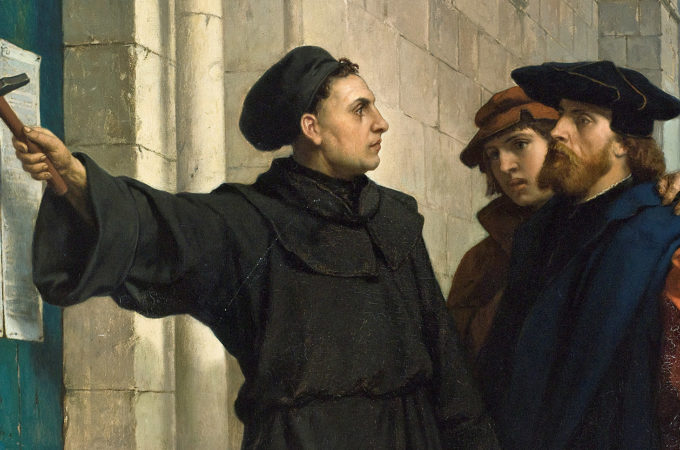





2 Comments
Roger Zurcher
February 18, 2016 - 11:59 pmHi Darrow, may be you will find this interesting too.
http://evangelicalfocus.com/europe/1324/Attestants_reclaiming_the_authority_of_the_Bible_inside_French_Protestantism
admin
March 1, 2016 - 3:50 amRoger,
It is so good to hear from you. Hope this finds you well. Thanks for the heads up on what is happening in France.